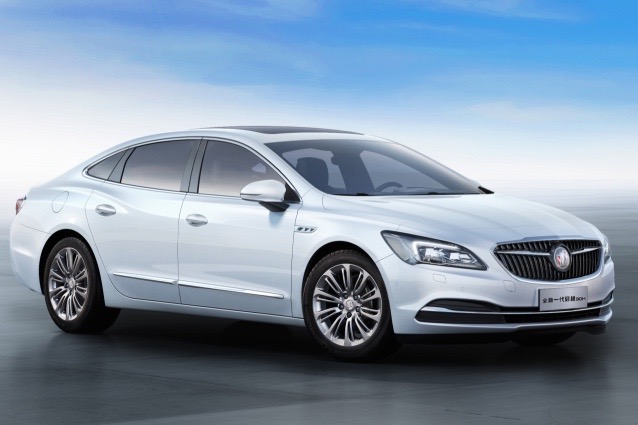When it comes to electric cars, China has some of the most generous incentives of any country.
But in its attempt to promote greener vehicles, China has largely ignored hybrids to focus on cars with plugs.
Efforts so far have concentrated on what the government calls "New Energy Vehicles," a category that encompasses electric cars, plug-in hybrids, and hydrogen fuel-cell vehicles.
DON'T MISS: China ratchets down green-energy growth for first time ever
Now it had shifted gears, and hopes to make one in four cars on Chinese roads a conventional hybrid by 2030, according to Reuters.
The news service cites a transcript of comments made last week by Ouyang Minggao, leader of a group commissioned by China's auto-industry regulator to set targets for green cars.
Prior to 2030, the group calls for hybrids to account for 8 percent of Chinese new-car sales by 2020, and 20 percent in 2025.

2017 Buick Lacrosse Hybrid (Chinese spec)
China has strict fuel-efficiency standards, including a requirement that automakers achieve an average 47 mpg by 2020—as measured using China's own testing procedure.
Last year, Keiji Ohtsu—Honda chief technology strategy officer for automobile R&D—said the standards were so tough that they would force his company to stop selling conventional internal-combustion powertrains in China.
So far, though, national and local incentive programs have focused only on vehicles with plugs.
ALSO SEE: Buick Lacrosse Hybrid unveiled at Beijing Auto Show, for China only
This was partially an aggressive move to deal with China's infamous air pollution, as well as a rapid attempt to turn the country into a leader in powertrain technology.
After years of slow consumer aceptance, China overtook the U.S. to become the biggest market for electric cars and plug-in hybrids last year.
However, not all of the electric cars sold there are the highway-capable vehicles listed in U.S. sales statistics, which exclude low-speed neighborhood electric vehicles.

2017 Toyota Prius
Incentive programs in China have also influenced the development of numerous startups working on electric cars.
More recently, the government has taken steps to consolidate the industry.
Those include proposing regulations that would make it harder for smaller companies to get the necessary licenses to produce vehicles.
MORE: China has a plan for all its electric-car startups; they may not like it
This is intended to help further develop the industry, by concentrating expertise and making greater allowance for economies of scale.
In contrast to the electric-car industry, however, any incentive program for hybrids would likely benefit larger, established manufacturers.
Toyota is by far the world leader in hybrid vehicles, having sold more than 8 million globally since the first Prius launched in Japan in 1997.
[hat tip: Brian Henderson]
_______________________________________________












